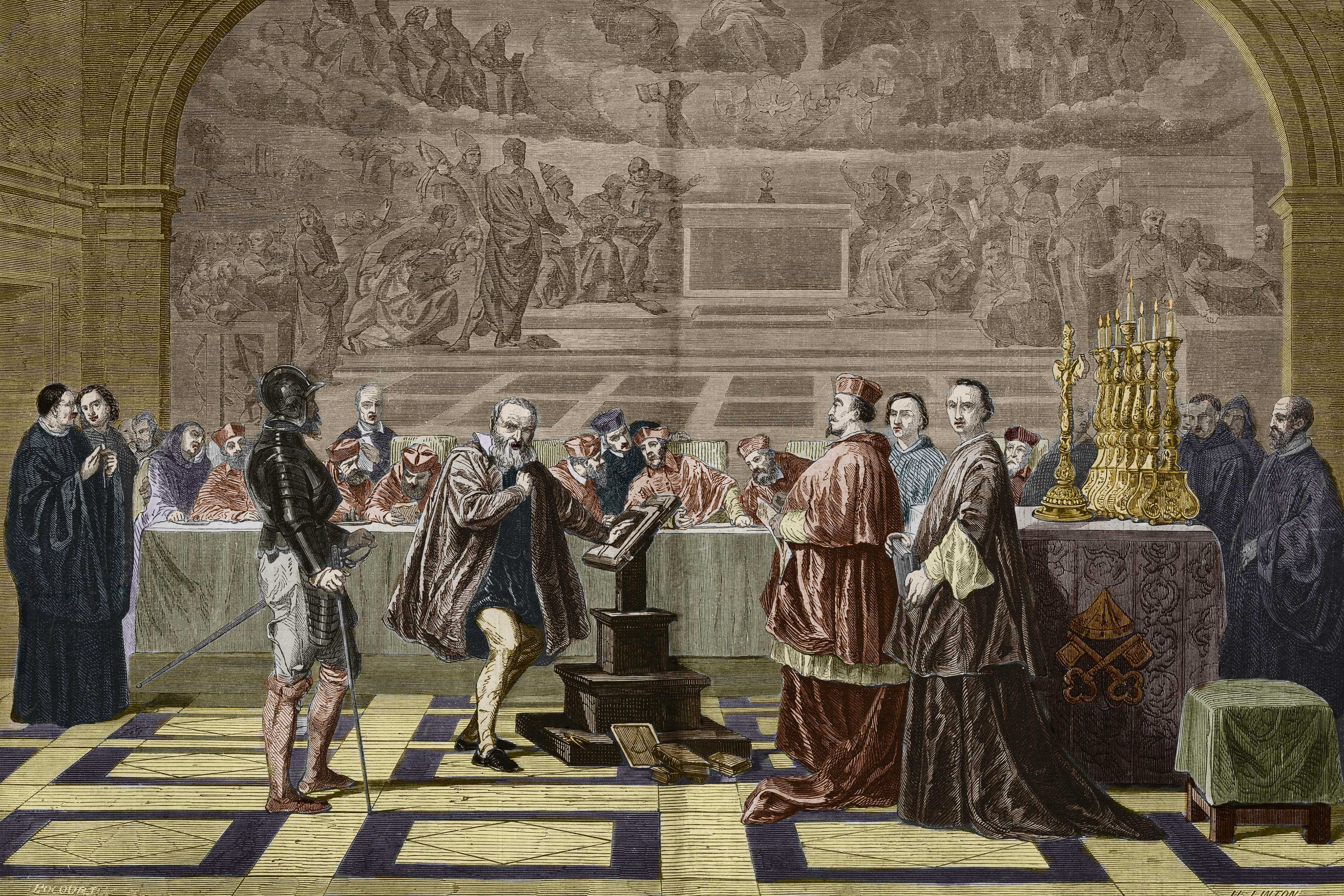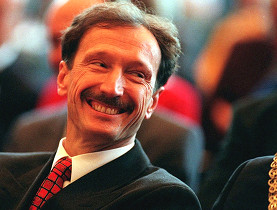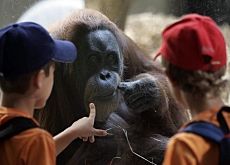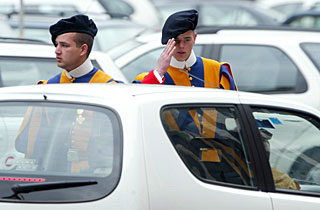Galileo’s heirs advise the pope

The new Swiss president of the Pontifical Academy of Sciences tells swissinfo.ch about the challenges of squaring religious faith with science.
Werner Arber, an Aargau-born microbiologist and geneticist who shared the 1978 Nobel Prize for Medicine, is the first Protestant to hold the position.
The 81-year-old heads a body that is meant to keep the pope up to date with the latest scientific developments. Historically, however, the Catholic Church has had a strained relationship with science, most notably with Italian scientist Galileo.
The church took exception to Galileo’s insistence that the earth wasn’t the centre of the universe. In 1633 he was found “vehemently suspect of heresy” and spent the rest of his life under house arrest. The church eventually realised Galileo was in fact correct, but it was only in 1992 – almost 360 years later – that Pope John Paul II “expressed regret” for how he was treated.
In another example, in March 2009 Pope Benedict XVI said condoms “aggravated” the Aids problem. Following intense criticism, he changed his mind, saying condoms could be used “in certain cases” in the fight against Aids.
swissinfo.ch: You have been the president of the Pontifical Academy of Sciences since January. What do you do?
Werner Arber: We follow scientific progress and consider what this means for society. I inform the Vatican periodically about our observations and findings.
swissinfo.ch: You are the first Protestant to hold this position. Will you be treated differently from a Catholic?
W.A.: I can’t answer that – I have no way of comparing. Presumably I was chosen because they noticed that I’m a scientist with a wide range of interests.
swissinfo.ch: Does the pope dictate which issues the academy should look at?
W.A.: From time to time, but not very often, a request comes from the Vatican. A few years ago we held a conference on the “moment of death” – whether someone who has experienced cardiac death or who is brain dead is actually dead. This theme was requested by the pope.
swissinfo.ch: What was the verdict?
W.A.: After consulting medical experts, we concluded that brain death is more important than cardiac death. After the latter you can be brought back to life. But, to be honest, we have to admit that we can’t determine the precise moment.
Some people lie in a coma for years. From a medical point of view, the question is: when is it ethically acceptable to remove someone’s organs? The Vatican is also interested in the question of when the soul leaves the body. We can’t answer that scientifically.
swissinfo.ch: But the Pontifical Academy of Sciences is independent from the Vatican?
W.A.: Yes. The academy claims to have a very long history – people say it has existed for more than 400 years, since the time of Galileo. Back then the church committed some major transgressions against science. The Vatican is aware of that –Galileo was rehabilitated in 1992.
swissinfo.ch: How great is the academy’s influence on the pope?
W.A.: I think that once in a while the pope takes our findings on board and incorporates them into his knowledge. His decisions are then influenced by them.
swissinfo.ch: What links the pope and science?
W.A.: Questions like: what is reality? Many people think about that, whether they are religious or not. What is the truth? Where do I come from? What will the future bring? Also questions about evolution: what’s the difference between life and non-life?
swissinfo.ch: The pope believes evolution is driven by a creator, a divine force that purposefully planned and guided evolution. What do you make of that?
W.A.: Until now science hasn’t been able to prove whether God exists or not – whatever God may be. What might be possible in 100 years, I can’t say. As a scientist, I don’t see any primordial will to create human beings.
But, if we’re being honest, we have to say that although we can make many pronouncements about reality, even I as an evolutionary biologist can’t say how the first living organism came into being.
swissinfo.ch: How does science explain it?
W.A.: Science calls it self-organisation. We can go into detail about how evolution works – about both cosmic evolution and about the evolution of life. We can say when the sun will use up all its energy and die – that’s a part of natural evolution. The various forms of life on our planet will certainly continue until then.
swissinfo.ch: What counts as “life”?
W.A.: Nasa, the American space programme authority, has two criteria: first, [an organism] must be able to reproduce; second, a population must be able to adapt to its environment – in other words, evolve. This is the case on our planet; all living organisms can do that. I find that a good definition of “life”.
swissinfo.ch: What have popes thought of that definition?
W.A.: In 1995, Pope John Paul II confirmed in an audience with the academy that one has to take into consideration the possibility that life evolves and can adapt to other conditions. He did not say it was a fact, but he did say you have to take it into account.
Benedict XVI hasn’t yet said anything against that, although as far as I’m aware he’s never dealt with the issue in detail. I’ve been told by those surrounding him that the Catholic Church sees “permanent creation” in biological and cosmic evolution.
Werner Arber was born on June 3 1929.
Along with American researchers Hamilton Smith and Daniel Nathans, he shared the 1978 Nobel Prize in Physiology or Medicine for the discovery of restriction endonucleases. Their work would lead to the development of recombinant DNA technology.
Arber studied chemistry and physics at the Swiss Federal Institute of Technology in Zurich. He received his doctorate in 1958 from Geneva University. He then worked at the University of Southern California in phage genetics.
In 1960, back at Geneva University, he worked in a laboratory in the basement of the Physics Institute where he carried out research. In 1965 he was promoted to extraordinary professor for molecular genetics.
In 1971 he moved to Basel University, after spending a year as a visiting professor in the Department of Molecular Biology of the University of California in Berkeley. In Basel, he was one of the first people to work in the newly constructed Biozentrum, which housed the departments of biophysics, biochemistry, microbiology, structural biology, cell biology and pharmacology.
Arber is married and has two daughters, one of whom, Silvia, is a professor of neurobiology at Basel University.
The Pontifical Academy of Sciences has its roots in the Academy of the Lynxes, which was founded in Rome in 1603 as the first exclusively scientific academy in the world. The Academy of the Lynxes but did not survive the death of its founder, Federico Cesi.
In 1847 Pope Pius IX re-established the Academy as the Pontifical Academy of the New Lynxes. Pope Pius XI renewed and reconstituted the Academy in 1936 and gave it its present name.
Today the academy’s activities range from a traditional interest in pure research to a concern with the ethical and environmental responsibility of the scientific community.
It has 80 members – men and women – who are not all Catholics. About a third are Nobel Prize winners.
Arber has been a member for 30 years.
(Adapted from German by Thomas Stephens)

In compliance with the JTI standards
More: SWI swissinfo.ch certified by the Journalism Trust Initiative




You can find an overview of ongoing debates with our journalists here . Please join us!
If you want to start a conversation about a topic raised in this article or want to report factual errors, email us at english@swissinfo.ch.